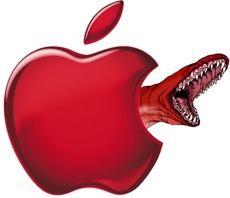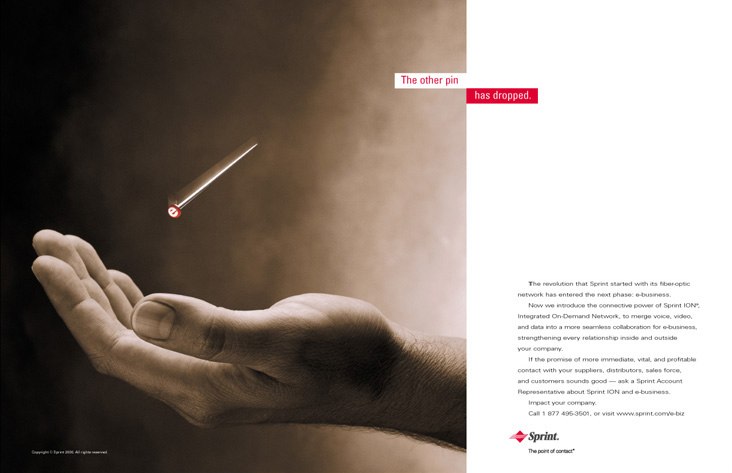I love talking to my smartphone and got a lot of grief for doing so from my friends last summer while on vacation at the shore. “There’s Michael talking crazy, again,”  as I was talking TO my phone, not through it. “Let’s ask Michael to ‘look’ that up! Haha.” And then Siri came along and I felt vindicated and simultaneously awed. The latter by Apple’s (AAPL, OCF = 6.9x) marketing and packaging prowess; seemingly they had trumped Google/Android (GOOG, OCF = 9.6x) yet again. Or had they? What at first appeared to be a marketing coup may become Tim Cook’s Waterloo and sound a discordant note for Nuance (NUAN, OCF = 31x). At its peak in early February NUAN hit a high of 42x OCF, even as Apple stood at 8.2x.
as I was talking TO my phone, not through it. “Let’s ask Michael to ‘look’ that up! Haha.” And then Siri came along and I felt vindicated and simultaneously awed. The latter by Apple’s (AAPL, OCF = 6.9x) marketing and packaging prowess; seemingly they had trumped Google/Android (GOOG, OCF = 9.6x) yet again. Or had they? What at first appeared to be a marketing coup may become Tim Cook’s Waterloo and sound a discordant note for Nuance (NUAN, OCF = 31x). At its peak in early February NUAN hit a high of 42x OCF, even as Apple stood at 8.2x.
The problem for Apple and Nuance in the short term is that the former is doubling down on its Siri bet with a brand new round of ads by well-known actors, such as Samuel L. Jackson and Zooey Deschanel. Advertising pundits noted this radical departure for a company that historically shunned celebrities.  Furthermore, with two (NY and LA) class action suits against it and financial pundits weighing in on the potential consumer backlash Apple could have a major Siri migraine in the second half. Could it be as big as Volvo’s advertising debacle 20 years ago; a proverbial worm in the apple? Time will tell.
Furthermore, with two (NY and LA) class action suits against it and financial pundits weighing in on the potential consumer backlash Apple could have a major Siri migraine in the second half. Could it be as big as Volvo’s advertising debacle 20 years ago; a proverbial worm in the apple? Time will tell.
The real problem isn’t with Apple, the phone or Siri and its technology DNA, rather the problem lies with bandwidth and performance of the wireless networks. Those debating whether Siri is a bandwidth hog are missing the point. Wireless is a shared spectrum. The more people who are on the same spectrum band, the less bandwidth for each user and the higher the amount of noise. Both are bad for applications like Siri and Android’s voice recognition since they talk with processors in the cloud (or WAN). Delays and missed packets have a serious impact on comprehension, translation and overall responsiveness. Being a frequent user of Google’s voice-rec which has been around since August, 2010, I know when to count on voice-rec by looking at the wifi/3G/2G indicator and the number of bars. But do others know this and will the focus on Siri's performance shift to the network? Time will tell.
The argument that people know voice-rec is new and still in beta probably won’t cut it either. I am puzzled why major Apple fanboys don’t perceive it as a problem, not even making it on this list of 5 critical product issues for the company to address. But maybe that’s why companies like Apple are successful; they push the envelope. In the 1990s I said to the WAN guys (Sprint, et al) that they would have the advantage over th e baby bells because the “cloud” or core was more important than the edge. The real answer, which Apple fully understands, is that the two go hand in hand. For Sprint (S, OCF = 3.2x) there were too many variables they couldn’t control, so they never rolled out voice recognition on wired networks. They probably should have taken the chance. Who knows, the “pin-drop” company could have been a whole lot better off!
e baby bells because the “cloud” or core was more important than the edge. The real answer, which Apple fully understands, is that the two go hand in hand. For Sprint (S, OCF = 3.2x) there were too many variables they couldn’t control, so they never rolled out voice recognition on wired networks. They probably should have taken the chance. Who knows, the “pin-drop” company could have been a whole lot better off!
Related Reading:
First impressions of i4s from Android user and Pros/Cons of Siri
A natural opposite for "siri" for the droid crowd would be an "Eliza", based on Audrey Hepburn's famous 'The Rain in Spain' character. Eliza is the name of a company specializing in voice-rec healthcare apps and also a 1960s AI psychotherapy program.